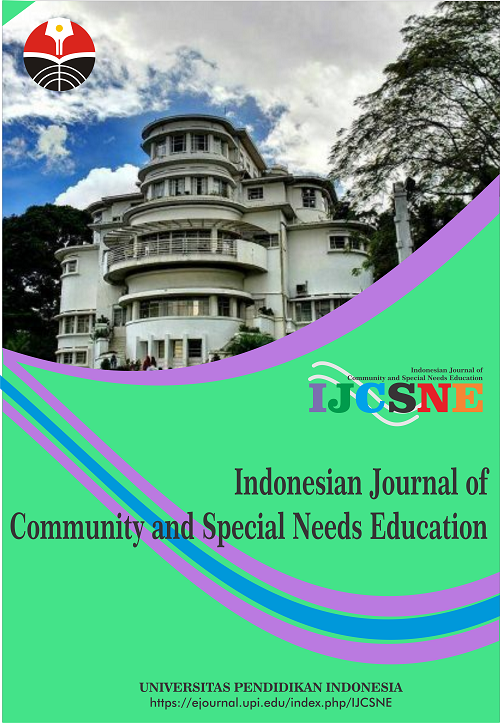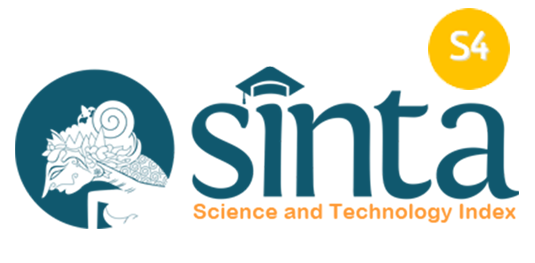Pedagogical and Psychological Foundations in Preparing Future Teachers
Abstract
Keywords
Full Text:
PDFReferences
Avramchenko, S., Ievtushenko, I., Kaliuzhna, Y., Levchenko, V., and Nezhynska, O. (2021). Professional consciousness as a subjective component of a personal professional development. Journal of Intellectual Disability–Diagnosis and Treatment, 9, 536-545.
Bauer, J. J., Park, S. W., Montoya, R. M., and Wayment, H. A. (2015). Growth motivation toward two paths of eudaimonic self-development. Journal of Happiness Studies, 16, 185-210.
Bermudez, T.C., Alcaide, A.M., Barcelona, A.M., Peralta, E., and Malaco, A. (2021). Online class: Its implication towards academic skills development. Indonesian Journal of Educational Research and Technology, 1(2), 61-66.
Chan-Anteza, T. K. (2020). Management of a conducive classroom environment: A meta-synthesis. Management, 11(26), 54-70.
Collie, R. J., Shapka, J. D., and Perry, N. E. (2012). School climate and social–emotional learning: Predicting teacher stress, job satisfaction, and teaching efficacy. Journal of Educational Psychology, 104(4), 1189.
Debasu, H., and Yitayew, A. (2024). Examining elements of designing and managing of creating inclusive learning environment: Systematic literature review. International Journal of Special Education, 39(1), 33-43.
Dubovyk, S. H., Mytnyk, A. Y., Mykhalchuk, N. O., Ivashkevych, E. E., and Khupavtseva, N. O. (2020). Preparing future teachers for the development of students’ emotional intelligence. Journal of Intellectual Disability–Diagnosis and Treatment, 8(3), 430-436.
Faddillah, R.N., Nandiyanto, A.B.D., and Bilad, M.R. (2022) Literacy program for elementary school students about inclusive education in recognizing children with special needs. ASEAN Journal of Community and Special Needs Education, 1(1), 1-8.
Farxod, T. (2023). Improving the methodology of preparing the future technology teacher for professional activity in the information education environment. ASEAN Journal of Educational Research and Technology, 2(3), 201-210.
Glushchenko, V.V. (2024). Formation of pedagogy of higher project education in the period of the new 18th-century technological order. Indonesian Journal of Teaching in Science, 4(2), 205-258.
Gu, Q. (2014). The role of relational resilience in teachers’ career-long commitment and effectiveness. Teachers and Teaching, 20(5), 502-529.
Hafina, A. (2024). Relationship between the counselor's personal characteristics and self-development experience with individual counseling skills. Indonesian Journal of Community and Special Needs Education, 4(1), 29-38.
Hasanovna, H.M. (2023). The mechanism of development of professional and pedagogical creativity of future physical education teachers based on a competent approach. ASEAN Journal of Physical Education and Sport Science, 2(1), 17-22.
Ibarrientos, J.N. (2024). Competency level in information and communications technology (ICT) of teachers: Basis for a technological, pedagogical and content knowledge (TPACK) readiness training program. Indonesian Journal of Teaching in Science, 4(1), 47-60.
Jayanti, M. I. (2024). Level of exposure elementary school teachersto the implementation merdeka curriculum. Al-Hayat: Journal of Islamic Education, 8(3), 845-861.
Jennings, P. A., and Greenberg, M. T. (2009). The prosocial classroom: Teacher social and emotional competence in relation to student and classroom outcomes. Review of Educational Research, 79(1), 491-525.
Kanfer, R., Frese, M., and Johnson, R. E. (2017). Motivation related to work: A century of progress. Journal of Applied Psychology, 102(3), 338.
Khaliljanovna, M.F., and Muhabbat, H. (2024). Methodology of forming professional skills in students based on an integrative approach. ASEAN Journal of Educational Research and Technology, 3(3), 197-204.
Khamidullaevna, K.F., and Muhabbat, H. (2024). Methodology of formation of students' professional competence based on innovative approach. ASEAN Journal of Educational Research and Technology, 3(2), 111-124.
Kianinezhad, N. (2023). The significance of teacher empathy in fostering students' engagement in English language classes. Journal of Research in Curriculum Instruction and Educational Technology, 9(2), 77-106.
Kinshuk, Chen, N. S., Cheng, I. L., and Chew, S. W. (2016). Evolution is not enough: Revolutionizing current learning environments to smart learning environments. International Journal of Artificial Intelligence in Education, 26(2), 561-581.
Li, M., and Cai, L. A. (2012). The effects of personal values on travel motivation and behavioral intention. Journal of Travel Research, 51(4), 473-487.
Lux, K., and McCullick, B. A. (2011). How one exceptional teacher navigated her working environment as the teacher of a marginal subject. Journal of Teaching in Physical Education, 30(4), 358-374.
Madina, Z., Aubakirova, R. Z., Manyapova, T., Rakhmetollauly, B. R., Anatolyevna, K. A., and Mishchenko, E. V. (2022). Self-development as a factor of professional growth of future teachers. Cypriot Journal of Educational Sciences, 17(3), 903-919.
Martinez, C. (2022). Developing 21st century teaching skills: A case study of teaching and learning through project-based curriculum. Cogent Education, 9(1), 2024936.
Ramírez-Montoya, M. S., Andrade-Vargas, L., Rivera-Rogel, D., and Portuguez-Castro, M. (2021). Trends for the future of education programs for professional development. Sustainability, 13(13), 7244.
Shinde, S.M., and Shinde, M.B. (2025). Integrating TPACK for soft skills and communication in engineering education: Definition, concept, strategies, challenges, and opportunities. Indonesian Journal of Multidiciplinary Research, 5(1), 1-20.
Speer, N., and Hald, O. (2008). Implications from research on teachers and teaching for graduate student professional development. Making the Connection: Research and Teaching in Undergraduate Mathematics Education, 73, 305.
Tolentino, L. R., Garcia, P. R. J. M., Lu, V. N., Restubog, S. L. D., Bordia, P., and Plewa, C. (2014). Career adaptation: The relation of adaptability to goal orientation, proactive personality, and career optimism. Journal of Vocational Behavior, 84(1), 39-48.
Van Driel, J. H., Beijaard, D., and Verloop, N. (2001). Professional development and reform in science education: The role of teachers' practical knowledge. Journal of Research in Science Teaching: The Official Journal of the National Association for Research in Science Teaching, 38(2), 137-158.
Vesely, A. K., Saklofske, D. H., and Leschied, A. D. (2013). Teachers—The vital resource: The contribution of emotional intelligence to teacher efficacy and well-being. Canadian Journal of School Psychology, 28(1), 71-89.
Xamidullaeva, K.F., and Fayzievna, H.M. (2023). Specific aspects of forming the professional competence of students in the process of higher education based on the innovation approach: Detailed method and result analysis. ASEAN Journal of Educational Research and Technology, 2(3), 251-264.
DOI: https://doi.org/10.17509/ijcsne.v4i2.82676
Refbacks
- There are currently no refbacks.
Copyright (c) 2025 Universitas Pendidikan Indonesia

This work is licensed under a Creative Commons Attribution-ShareAlike 4.0 International License.















